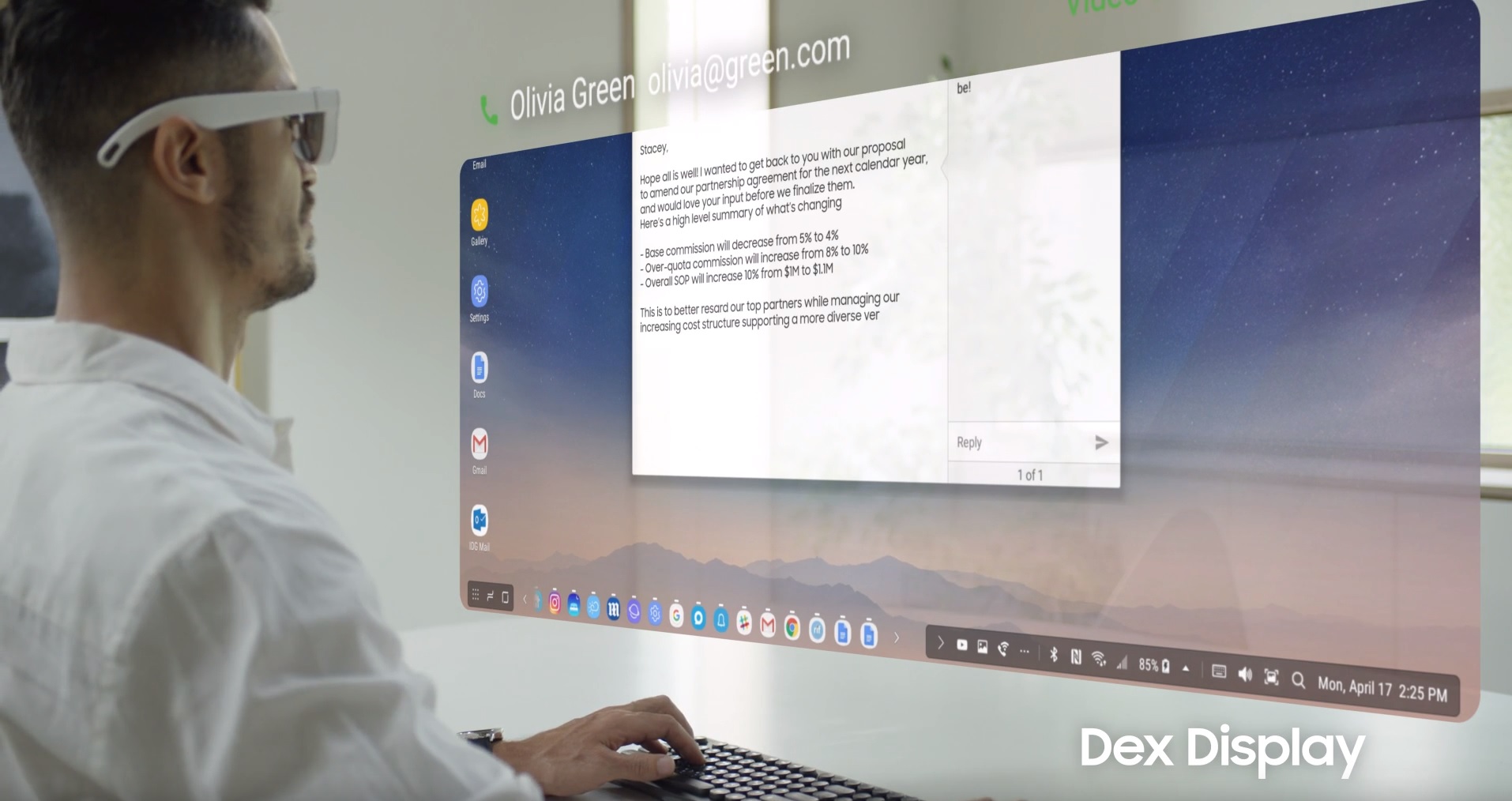Leaked Samsung smart glasses specs point to Ray-Ban Meta competitor
Samsung's 'Galaxy Glasses' could be part of a larger wave of wearables

A recent leak purporting to reveal specs for an upcoming pair of Samsung smart glasses points to a direct competitor to the popular Ray-Ban Meta smart glasses.
Unlike previous reports of mixed-reality headsets or glasses, these new frames appear to be focused on providing a wearable AI assistant in smart glasses form, and less of a visual experience.
See also: Samsung Smart Glasses in January 2025? Here's everything we know so far
Samsung's "Galaxy Glasses": An AI wearable following in the footsteps of Meta's popular smart glasses
The leaked specs alluding to Samsung's take on smart glasses come from a post on X by user Jukanlosreve, sourcing a Wellsen XR Research out of China. While lacking in any information about the design of the frames, the specifications shared are enough to paint a general image of what we can expect.
Featuring a Qualcomm Snapdragon AR1 processor, a 12-megapixel Sony IMX681 camera sensor, a 155 mAh battery, and a weighing 50 grams, the leaked specs almost perfectly mirror those found in the current Ray-Ban Meta smart glasses — a pair of glasses featuring a camera and an AI assistant which have proved to be an impressive success for Meta.
| Header Cell - Column 0 | Samsung Glasses (rumored) | Ray-Ban Meta Smart Glasses |
|---|---|---|
| Processor | Qualcomm Snapdragon AR1 (Unspecified generation) | Qualcomm Snapdragon AR1 Gen 1 |
| Camera | Sony IMX681, 12MP | Unspecified, 12MP |
| Battery | 155 mAh | 154 mAh |
| Weight | 50 grams | 48-51 grams |
| AI | Google Gemini | Meta AI |
However, Samsung's frames will differ from Meta's by swapping Meta AI for Gemini, likely harnessing the potential of Google's AI, shown in a recent Project Astra demo. Astra uses the multimodal capabilities of Gemini to act as an AI assistant for smartphones and smart glasses using audio and visual prompts.
There's no indication of which generation of Qualcomm processor Samsung's glasses are rumored to use, with user Jukanlosreve only suggesting that it will be part of the Snapdragon AR1 family.
Sign up to receive The Snapshot, a free special dispatch from Laptop Mag, in your inbox.
Qualcomm has yet to announce the Snapdragon AR1 Gen 2, but an improved chipset could improve efficiency and make the most of the wearable's smaller battery life.

Samsung's wider vision for wearables
Samsung's February 2023 Galaxy Unpacked event saw the South Korean tech giants announced a partnership with both Google and Qualcomm to create a new mixed-reality platform, which many suspect to be an upcoming headset similar to the Apple Vision Pro.
However, during a September CNBC interview, Qualcomm CEO Cristiano Amon revealed that the trio is also developing a pair of mixed-reality glasses. There aren't many more details to share surrounding this future product, but AR glasses have long been on Samsung's radar with a 2001 leak revealing its early vision through the Samsung Glasses Lite.
Should this most recent Samsung smart glasses leak prove accurate, it would suggest that the company is currently working on at least three separate vision-based products — a much wider line of wearables than previously expected.
This would also see Samsung face off against Meta on three fronts, directly competing against the Meta Quest 3, Ray-Ban Meta smart glasses, and potentially the future Orion AR glasses.
Outlook
Samsung has already shown its willingness to expand its wearable catalog, diving into a new market with the release of the Galaxy Ring in July.
We've known about the company's mixed-reality ambitions for some time now, and it would appear that the company is willing to diversify its initial goals to find success in the market.
While the mixed-reality headset market will be a tough fight for Samsung to take to Meta, especially after its release of the ultra-affordable $299 Meta Quest 3S, the popularity of the Ray-Ban Meta's and the interest shown in Meta's upcoming Orion there's plenty of space for more options.
More from Laptop Mag
- Ray-Ban Meta Smart Glasses review: A glimpse into what glasses could be
- I'm convinced Meta’s Ray-Ban smart glasses are the most underrated gadget of 2024
- What are smart glasses? Yesteryear’s ‘next big thing’ is finally finding an audience

Rael Hornby, potentially influenced by far too many LucasArts titles at an early age, once thought he’d grow up to be a mighty pirate. However, after several interventions with close friends and family members, you’re now much more likely to see his name attached to the bylines of tech articles. While not maintaining a double life as an aspiring writer by day and indie game dev by night, you’ll find him sat in a corner somewhere muttering to himself about microtransactions or hunting down promising indie games on Twitter.
